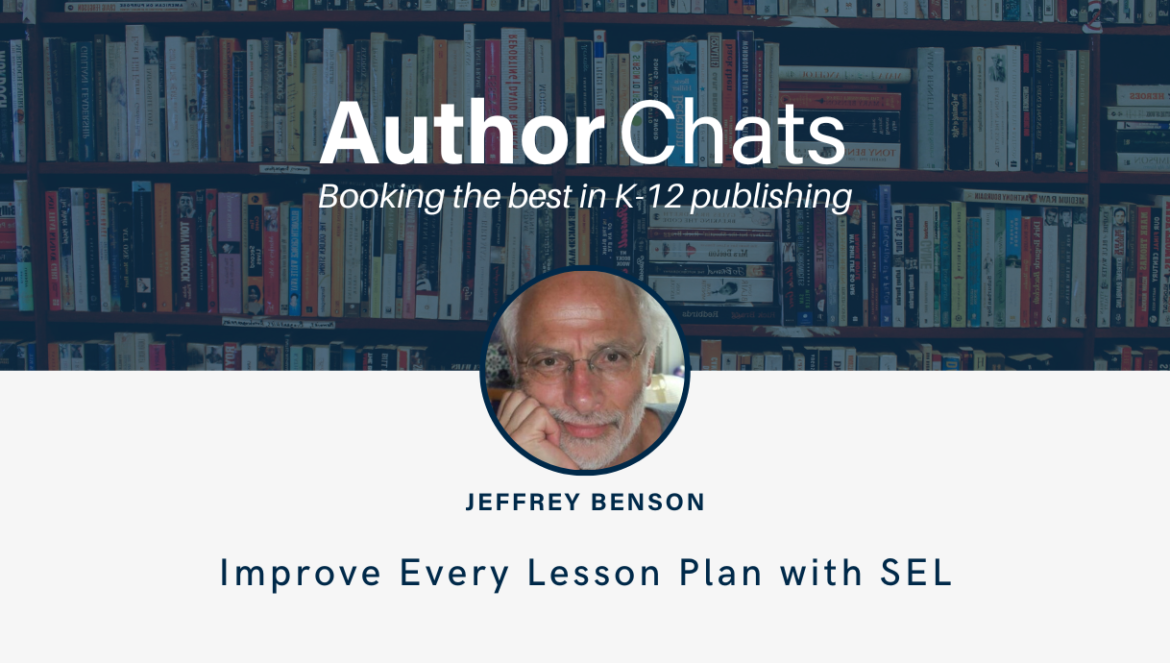In this author chat episode, Jeffrey Benson discusses themes from his book Improve Every Lesson Plan with SEL, which focuses on helping educators incorporate deliberate social-emotional learning (SEL) into their teaching practices. Benson draws on over 40 years of experience as a teacher and an administrator providing clear-cut, step-by-step guidance on how to integrate SEL into K–12 lesson planning—without developing a separate SEL curriculum.
According to Benson, all teaching implicitly has SEL built into everyday student-teacher interaction but guiding lesson plans with more intentionality is key. “Let’s work with what they’re already doing and go from an implicit, random model to an explicit and intentional model,” he says. Finding methods to support cohorts of students who are struggling to ask for help or posing important prompts to specific individuals can help continually engage learning throughout instruction.
Helping kids take ownership of their social-emotional needs ultimately leads to better learning. Benson’s early career was spent working with traumatized and neglected kids who didn’t “fit in” and did not tend to their social-emotional needs. He was always thinking about how to prompt them to take care of themselves, take breaks to help with focusing, and work with their strengths. He noticed years later that what worked for those struggling students was useful for all kids. Benson points to the importance of moving away from the old western notion that we are primarily thinking individuals with emotions. “What’s much clearer now is we are emotional beings who also happen to think,” he explains. “It’s getting everyone’s emotions settled, to get their skills up so that when a lesson starts, they know how to take care of themselves. As a teacher, I want every kid’s brain with me, which means, I take down all the impediments to build up their own skillset for taking care of themselves.”
Listen to the interview and think through the following questions to consider how using intentional SEL practices in your lesson planning can translate to a better, more engaging learning environment:
• Are there specific students in your class that need extra attention and support in taking ownership of their social and emotional wellbeing? Have you considered pre-planned prompts to get them more engaged that would also translate to the classroom as a whole?
• As a teacher, are there SEL practices that you are informally using that could benefit from more intentional integration into lesson planning?
• Lesson plans that are intentionally, explicitly informed by SEL can improve participation, build trust and create sustained effort with students. Are there reflection questions as a teacher you can form when creating lesson plans to help you focus on those aspects?
• “What’s necessary for some students can be helpful for all students” is an interesting concept brought to attention in Benson’s findings. How as a teacher have you recognized your methods used with the most difficult students also working effectively when reshaped and adapted to the majority of students?
• Benson points to SEL skills that educators can add to their teaching into three groupings: skills for self, interpersonal skills, and skills as a community member. Do you see a benefit in incorporating these skills into your lesson planning routine?
Listen to more episodes of Author Chats.







